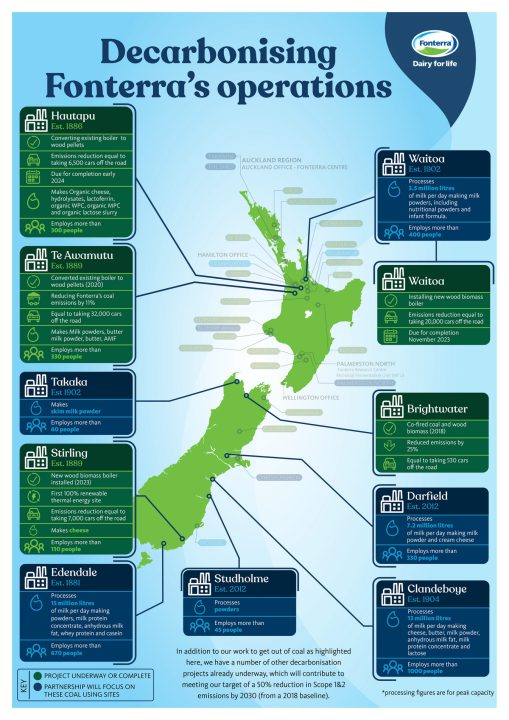New Zealand dairy co-op Fonterra has this week announced new ambitions for its carbon reduction targets.
The new plan aims to reduce the co-op’s Scope 1 and 2 emissions by 50% between 2018 and 2030, an increase from its original target of a 30% reduction in the same timespan. Fonterra is placing this within its broader aim of becoming carbon-neutral by 2050.
To achieve its new ambition, the farmer-owned business will need to cut Scope 1 emissions – directly made through its manufacturing operations – and Scope 2 emissions – generated through its use of energy throughout its supply chain.
Fonterra plans to switch to renewable energy across its milk collection fleet and manufacturing sites, with a focus on the six where it uses coal.
An investment of NZ$790m, including a government contribution of up to $90m through the Government Investment in Decarbonising Industry (GIDI) fund, is being forecast to make the necessary changes.
“As a co-op, Fonterra understands how we can achieve more by working together,” said CEO Miles Hurrell. “The addition of government funding enables us to lift our 2030 ambition to reduce Scope 1 & 2 emissions by 50% and optimise our process to get out of coal by 2037.
“Our decarbonisation plan will see us explore multiple technologies to ensure the most efficient phase out of coal and transition to renewable energy across our manufacturing.”
Fonterra says it is also assessing biomass, electrification and heat pump technology at two of its site, Clandeboye and Edendale.
It is also in talks with farmers about a Scope 3 emissions target, due to be announced soon.
